On the morning of April 14, 2024, the sixth elite training course of Jinghe - "Building Efficient Execution Ability" - was held as scheduled. This course specially invited Mr. Yang Baolin, a renowned management training expert from Futai Business School, as the main speaker, who delivered an excellent sharing session for all the participants.
In our work, we often encounter low work efficiency due to our own professional attitude and insufficient execution ability. Teacher Yang, based on the problems that students encounter in their actual work, conducted group discussions and mutual comments in class to enable everyone to have a deeper understanding of the misunderstandings in team execution. And through the analysis of the SMART principle and the application of PDCA, it helps everyone understand themselves and each other, communicate effectively, and determine reasonable team goals.

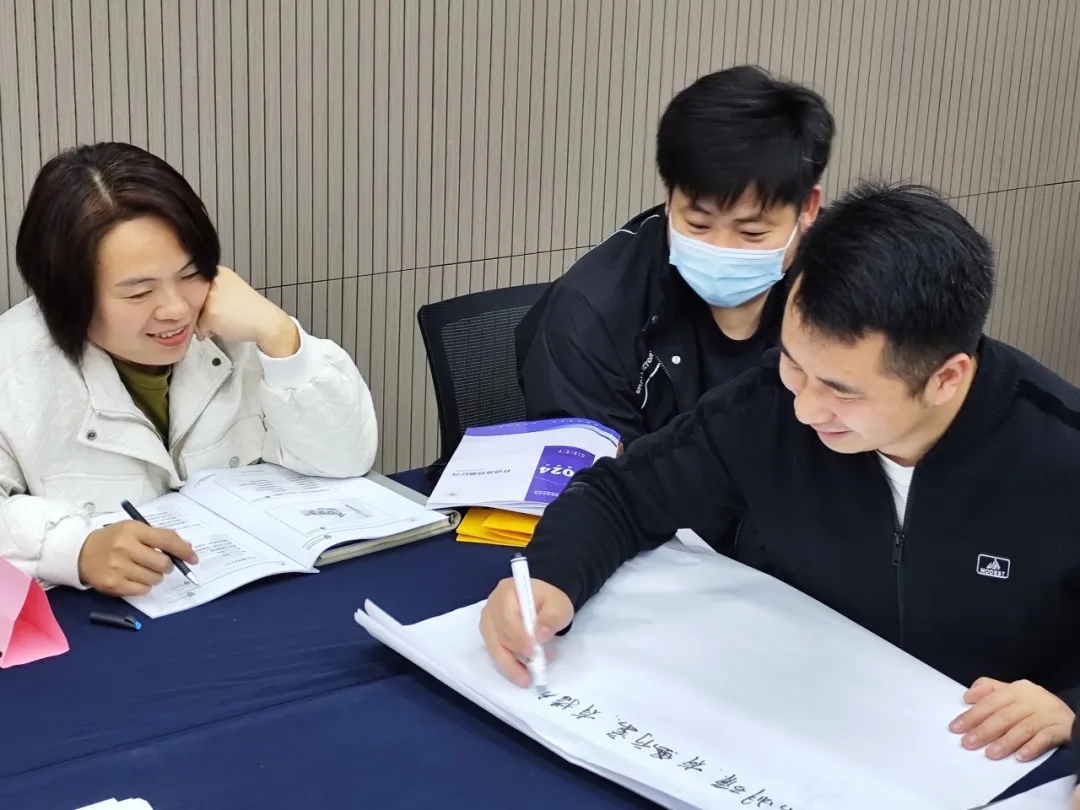
The course is carried out in three parts, namely, execution awareness and execution quotient, team goals and execution communication, and team execution ability and execution culture.
01 Execution Awareness and Executor
Through an execution framework diagram of an outstanding company, the teacher enabled everyone to understand that the core of execution management lies in the recognition and positioning of management roles, clarifying one's mission and goals within the enterprise, and establishing an execution awareness.
Through two major actions: 1. Management actions, 2. Relationship actions; Understand the importance of the awareness of execution. Initiate another round of thinking and exchange: Why do employees choose to work for this company? Analyze the problem to understand where the employees' execution awareness actually comes from - professional attitude determines execution awareness. Since you don't want to, you can't. Rejection and obstacle setting start from here.
Three major factors affecting employees' execution awareness:
1. The ideas existing in the company;
2. The current management mechanism of the company
3. Who is the team leader?
It pointed out 12 tendencies in the execution of middle managers:
1. Execute in reverse order of priority;
2. Execute on behalf of subordinates;
3. Fire-fighting execution;
4. Lack of subjective initiative in execution;
5. Unclear execution of goals;
6. Failing to pursue excellence in execution;
7. Unplanned execution;
8. Inability to innovate in execution;
9. Execution starts strong but ends weak;
10. Poor information flow and unclear data execution;
11. Rely on superiors for execution;
12. Shirking responsibility for execution.
One of the key factors influencing the team's execution ability - the need to establish a PDCA management system, as illustrated below:
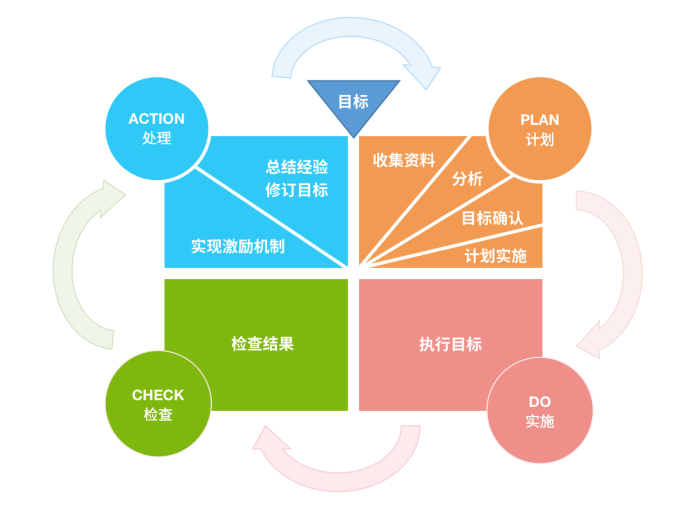
People often talk about intelligence quotient (IQ) and emotional quotient (EQ). In our execution ability, there is execution quotient. By analyzing the character "势" (shi) : accumulate momentum (accumulate), leverage momentum (stimulate internal drive), create momentum (achieve results), and operate fortune (operate); To cultivate an executor in work, establishing critical thinking is the foundation of an executor. One should learn to look up and work smartly, discover resources, and integrate them for one's own use. In summary, it can be summed up in 12 words: see - pay attention, understand - predict, see through - verify.
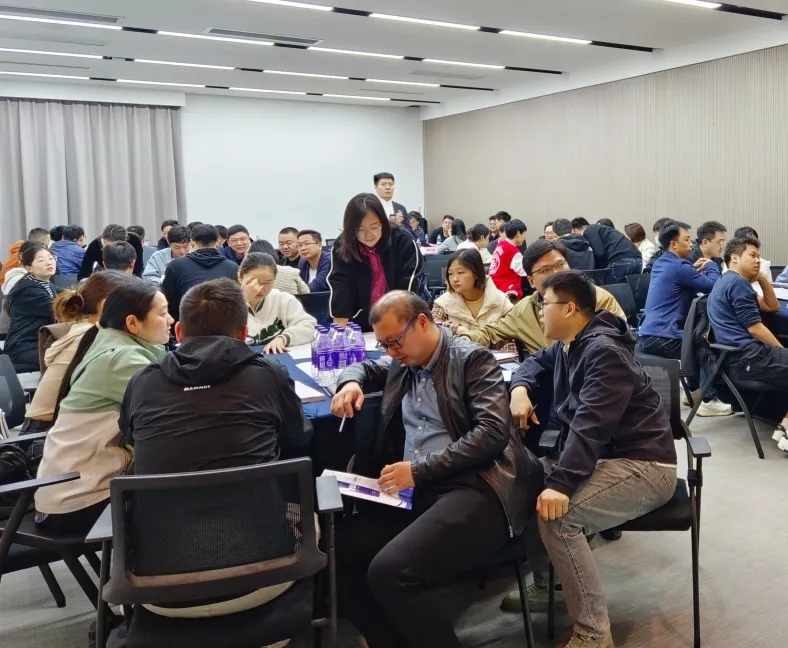
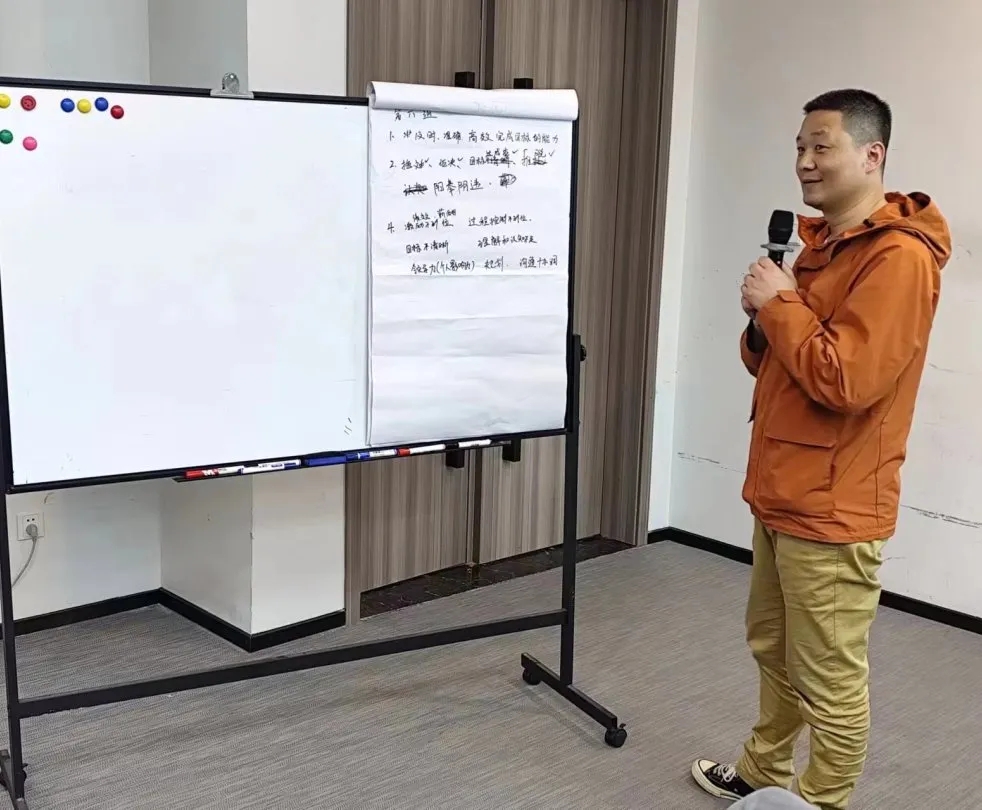
02 Communication on team Goals and Execution
The cultivation of team execution ability first requires the determination of team goals and the stimulation of the driving force for execution: whether to do it or not, and the relationship between doing it well or poorly and him (the employee)?
Establish team goals through the SMART principle:
S: Set clear and specific goals
M: Measurable
A: Acceptable
R: Realistic and feasible
T: There is a time limit
Seven steps for setting team goals:
1. Correctly understand the overall goals of the company and effectively communicate them to subordinates;
2. Set goals in line with the SMART principle;
3. Check whether the goals are consistent with those of the supervisor;
4. List the possible problems and obstacles you may encounter and find corresponding solutions;
5. List the authorizations and skills required to achieve the goals;
6. List the cooperative partners and external resources necessary to achieve the goal;
7. Determine the date for achieving the goal.
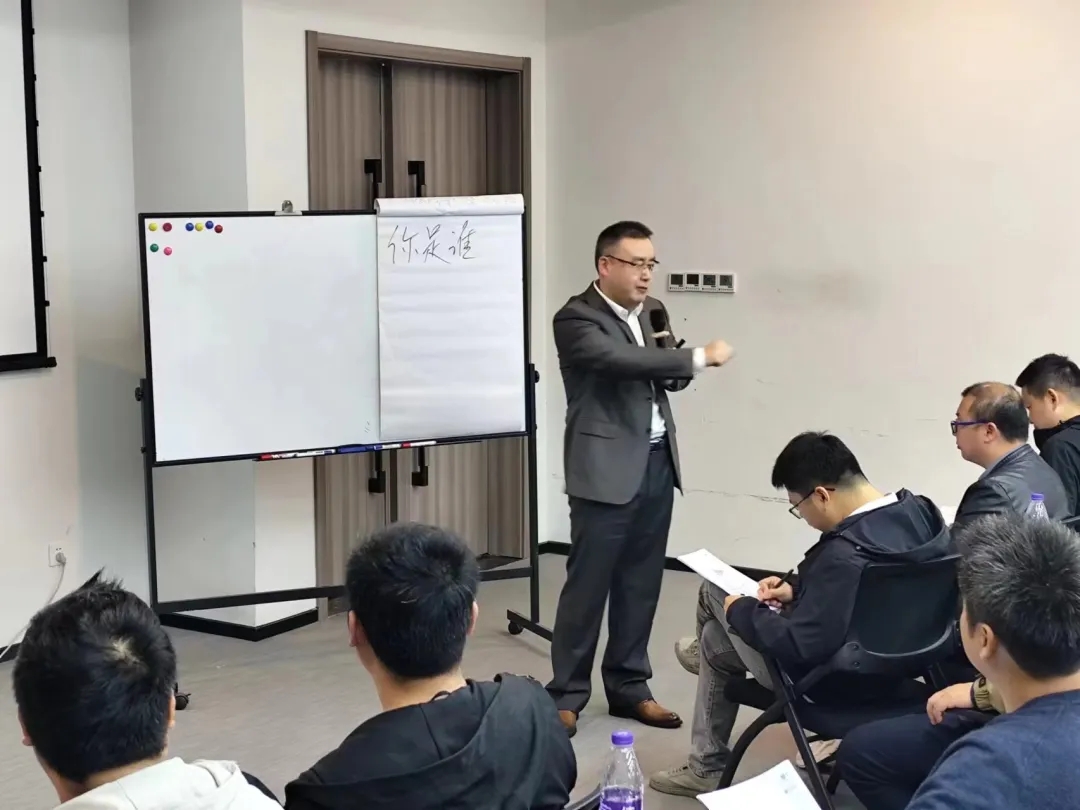
The three elements of executive communication: determine communication goals, create a communication atmosphere, and identify influencing factors; Only by flowing in the same direction can communication be achieved; only through communication can integration be achieved; only through integration can hearts be connected; and only through heart-to-heart connection can souls be drawn upon.
Before execution, discover and stimulate the driving force for execution. The key contents of the communication of the target plan scheme include: resources, responsible persons, schedule, key nodes, execution standards, and predictive plans, etc.
Mnemonic during execution: People won't take the initiative to complete the tasks you expect; they will only complete the tasks you inspect. Managers should lead by example and set a good precedent. Communicate management while on the move, promote post-implementation assessment and summary communication, analyze the past in recollection, and deal with the future in review.
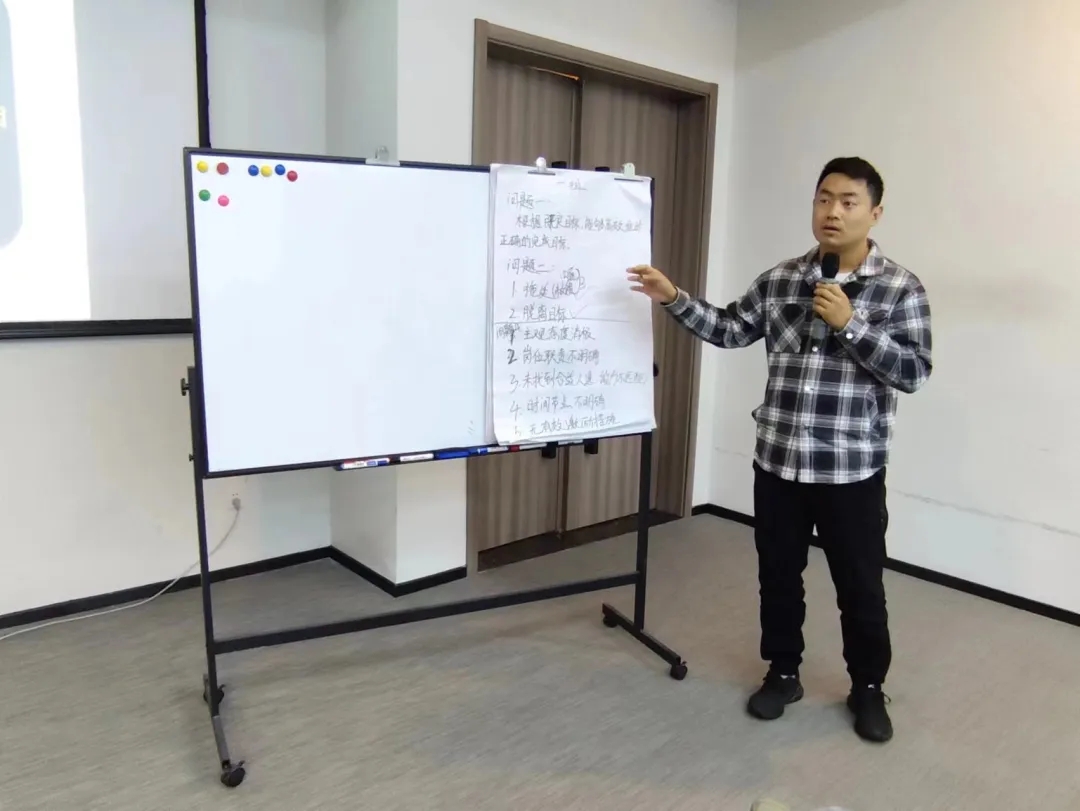
03 Team Execution Ability and Execution Culture
Finally, the course focuses on the topic of "Team Execution Ability and Execution Culture". Teacher Yang pointed out that team execution ability is the result of the joint collaboration and mutual support among team members, and the execution culture is the soil that nurtures this execution ability. The importance of enhancing the personal execution ability of managers: Understanding oneself, improving self-awareness, and uncovering hidden influence. Key point: Make learning a way of life.
A positive mindset determines 85% of success. Setbacks = passbooks, pressure = motivation, and obstacles = favorites. A person's charm lies in experiencing difficulties and hardships. While having a positive mindset, it is also necessary to manage time well, divide work tasks into four quadrants, focus on what you need, turn thoughts into physical objects, think about it, do it, and get it. It is even more important to take the initiative to complete crushed stone tasks: explore new opportunities, plan and improve production capacity, and establish partnerships.
How to turn the execution process into a habit: Execution environment → Awareness → concept → behavior → Repetition → habit; Visual management can be applied in work to convey information quickly and efficiently, which is conducive to unified management, boosting morale, enhancing execution ability, promoting the formation and construction of corporate culture, transforming corporate culture into behavior, and visualizing problems, situations, customers, experience sharing, and business operations.
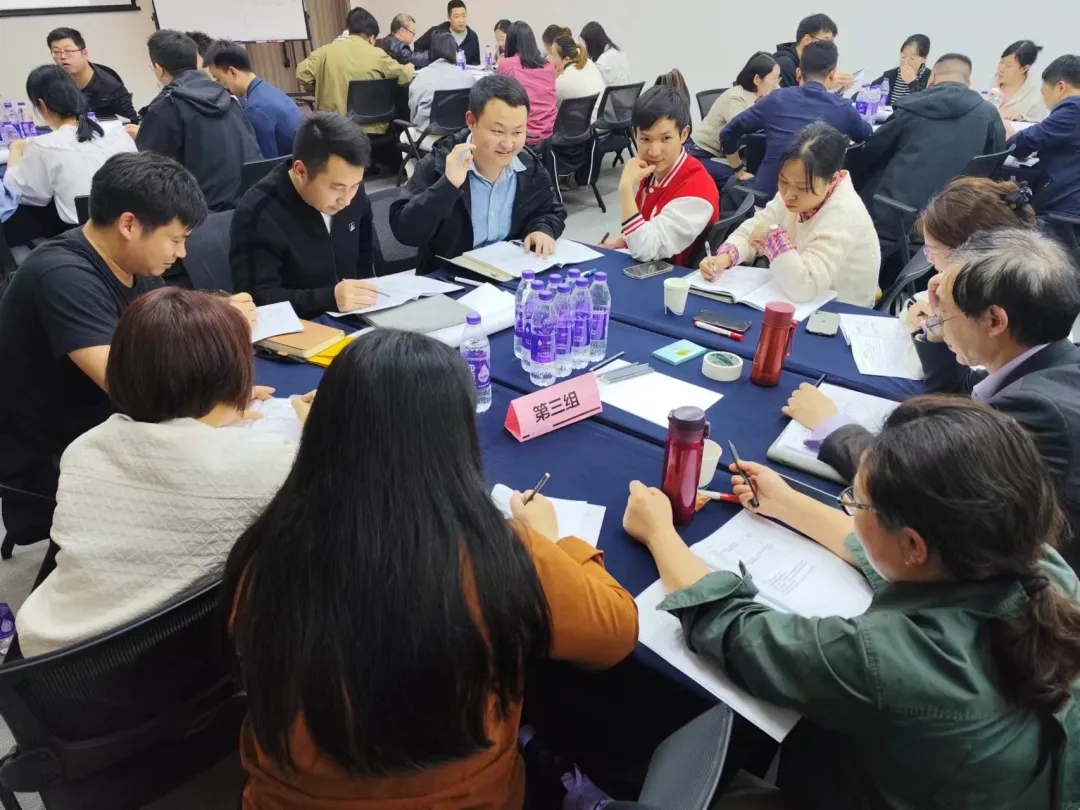
The 5W2H principle for accurately conveying the intention of a command: What to do, Why why, When to complete, Where to obtain resources from, Who to be responsible, How to do it, and how many to work on.
When assigning tasks to subordinates: The tasks should be commensurate with the functions, the instructions must be clear, and they should be discussed with the subordinates. Provide important information to subordinates and be good at conveying the "implied meaning". After the instructions are given, ask them to repeat the orders, let them ask questions, solve the problems they don't understand, and then ask the questions to confirm that the subordinates understand.
Execution Tool
1. Collective wisdom and effort method: Clear process, well-defined responsibilities, and well-matched capabilities;
2. 4P Method: Work Plan (Plan), Responsibility Commitment (Promise), Process Tracking (Progress), Performance Evaluation (Promotion).
The Four Fixed Rules for enhancing team execution: set goals, define responsible persons, set standards, and set evaluations. Establish an execution culture to encourage every employee to devote themselves wholeheartedly to their work and change their behavior from the bottom of their hearts.
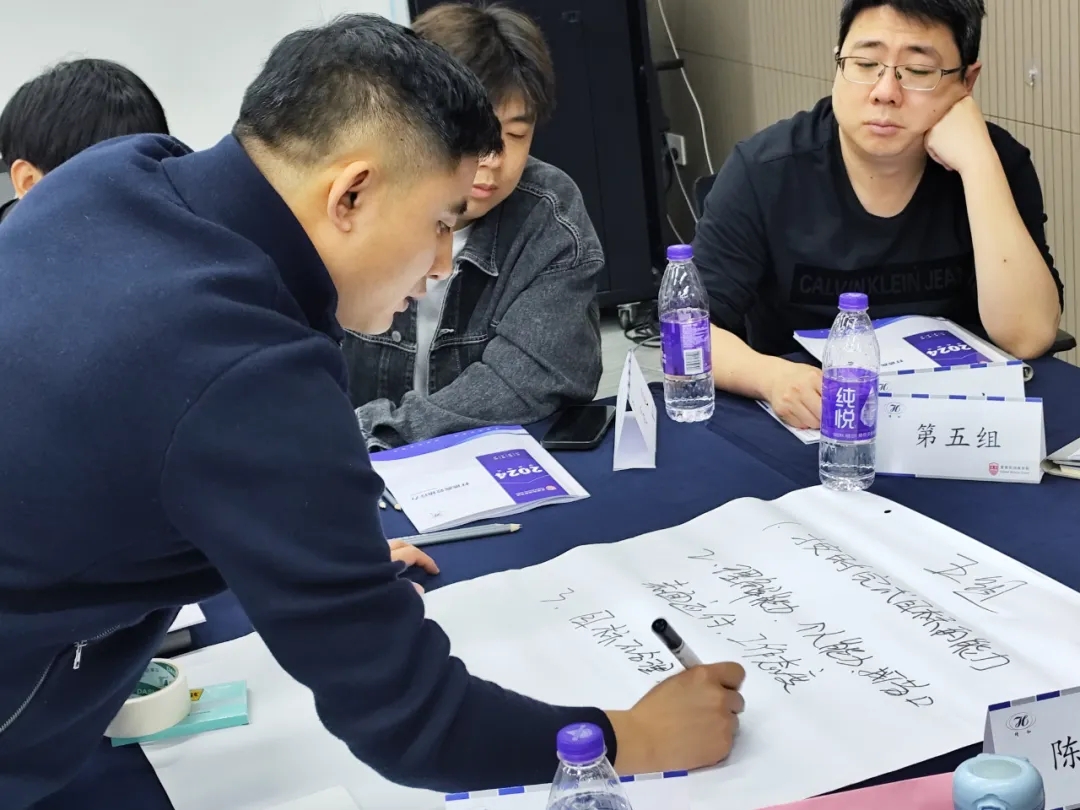
After the entire course, the students all expressed that they had gained a lot. Not only have I gained a deeper understanding of efficient execution, but I have also learned practical methods and skills. It is believed that in future work, this knowledge and experience will become a powerful driving force for promoting enterprise team management.